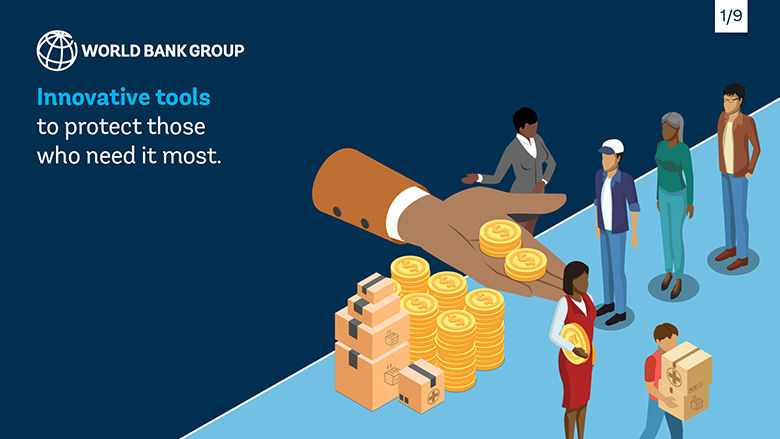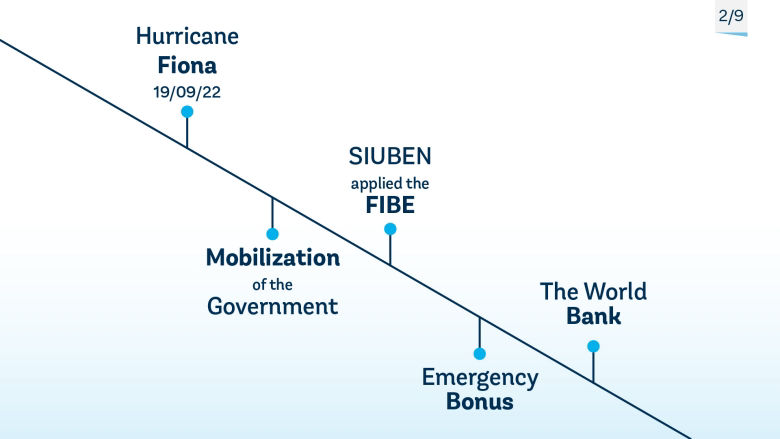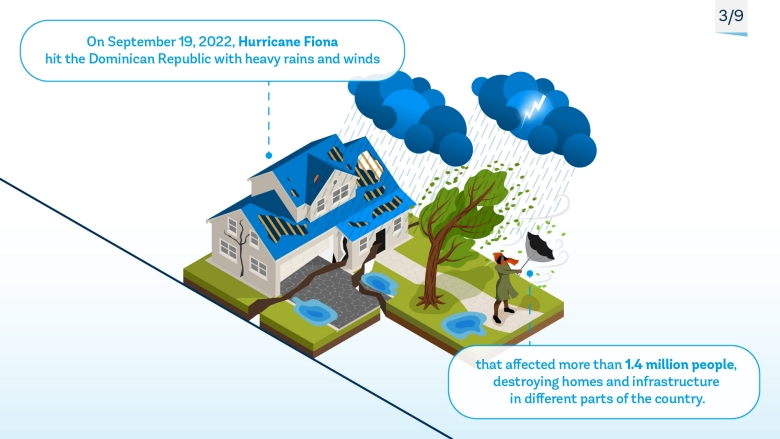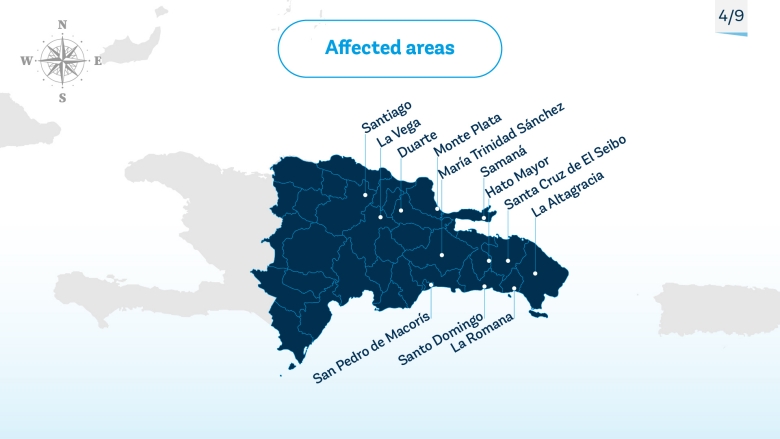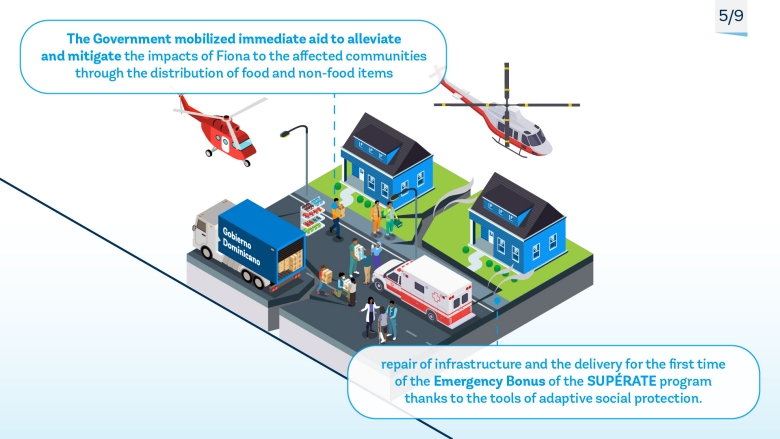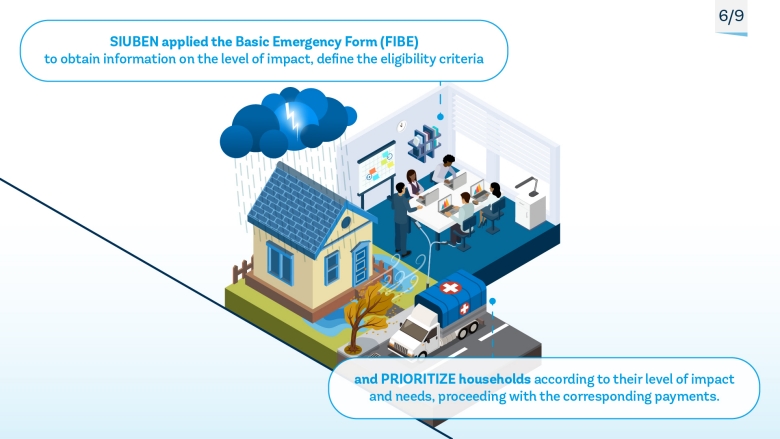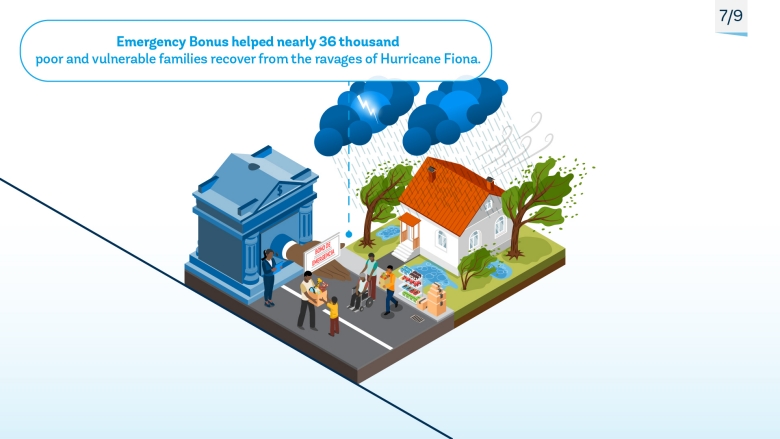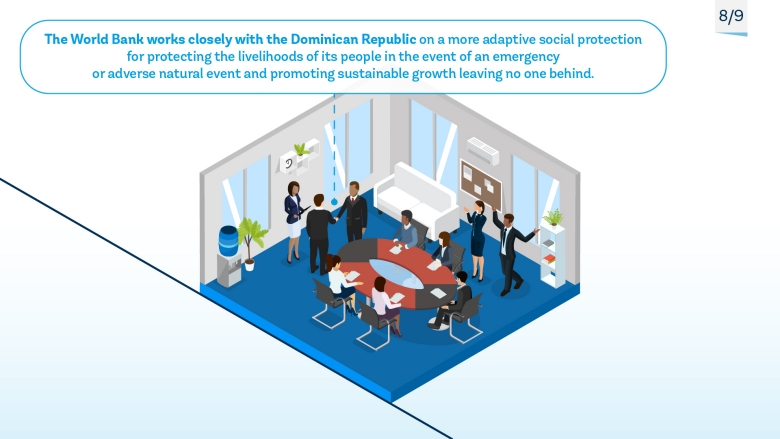When Julia returned home after Hurricane Fiona passed in September 2022, she found a desolate scene. "The hurricane destroyed everything. It was a disaster," she recalls.
However, with the swift response from the Dominican government through the Emergency Bonus (Bono de Emergencia), she was able to mitigate Fiona's impact on her family's economy and gradually recover her smile. "For four months, they deposited twenty thousand pesos that I used to buy groceries," she remembers. Additionally, Julia received help to repair much of the damage to her home.
Julia regularly receives other financial aid which, like the Emergency Bonus, are supported by the World Bank and aimed at promoting food security, nutrition, and efficient energy use through programs such as Aliméntate, Bonoluz, and Bonogas. All these aids are part of SUPERATE, the most important program in the Dominican Republic's social protection system.
SUPERATE also helps the most vulnerable Dominican families by providing them with the opportunity to invest in their children's health and education through conditional cash transfers, ensuring they meet certain criteria, such as sending the little ones to school. Additionally, it aims to support participants with training to develop job skills and helps them establish connections to improve their integration into the labor market, especially among women, who experience greater inequality, according to the recent gender assessment by the World Bank.
These initiatives are complemented by the Emergency Bonus, which main objective is to help the poorest and most vulnerable households that have suffered the consequences of a disaster or are affected by climate change.
At the Forefront of Social Protection Systems
The Dominican Republic's adaptive social protection system has become a reference for other countries in the region and the world.
"This is the result of the government's continuous work with the support of international organizations like the World Bank, reflected in a working group where various actors support the government in a coordinated and complementary manner under the SUPERATE program," explains Alexandria Valerio, World Bank representative in the Dominican Republic.
According to the World Bank's note "Towards Adaptive Social Protection Systems in Latin America and the Caribbean," adaptive social protection system approaches are based on recognizing that social protection systems have the capacity to cushion the consequences of a variety of shocks on livelihoods, incomes, food security, and household assets. To this end, governments must work on the four pillars of PSA: data and information; programs; financing; and institutions and coordination.
The success of the Dominican system lies in the development of these four pillars. Regarding data and information: the SIUBEN (the single beneficiary system) allows the identification of poor and vulnerable households and classifies them according to their poverty levels; additionally, it collects the a basic needs questionnaire (FIBE for its name in Spanish) that identifies the combination of poverty and the degree of impact, allowing the SUPERATE technical committee, comprised of SIUBEN, SUPERATE, and ADESS (the social subsidies administration), to make informed decisions about the households that meet the criteria to receive the Emergency Bonus.
The second pillar is programs and systems: once the Emergency Bonus was created in 2021, it has been used to respond to various disasters such as Hurricane Fiona, in which case the bonus helped 34,000 poor and vulnerable families like Julia's to recover from the consequences. Immediate help was mobilized to alleviate and mitigate their impact on affected communities.
The third pillar is financing: the Emergency Bonus technical committee, once it receives information on the extent of the impact, it sends a report to the Ministry of Finance requesting the necessary funds to cover the emergency with clear and objective data and evidence.
The fourth pillar is institutions and coordination: the Emergency Bonus is institutionalized by presidential mandate, and coordination has an established route in the government and at the level of international organizations.
The success of the Dominican adaptive social protection system lies in its response to climate extreme events like Hurricane Fiona and other crises, such as the COVID-19 pandemic, during which approximately 1.6 million households benefited, doubling the program's pre-pandemic coverage. Through the rapid and effective response of the government, by expanding the coverage and support amounts of SUPERATE, an additional increase in the poverty rate of up to 6 percentage points was avoided.
Learn more about the Dominican Republic's adaptative social protection system.

